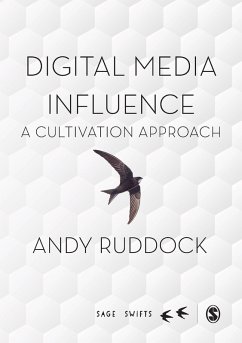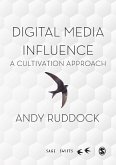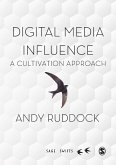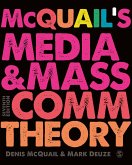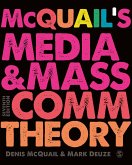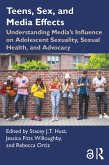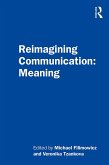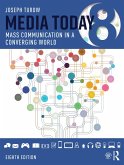Populism, misogyny, rampage murders. Digital media seem to lie at the heart of sinister, intractable social challenges. Curiously, the very societies who fear such things are often dismissive of media research. Addressing key issues affecting global media industries, this book explains how to solve the present conundrum by appreciating the historical development of cultivation theory.
Digital Media Influence ties cultivation themes, such as mean world syndrome, mainstreaming, the celebration of white male violence, the ridiculing of ageing women, the inhibition of activism, the mediatisation of religion and the erosion of trust in education, with contemporary digital media case studies. Considering the aftermath of the Parkland murders, political memes, Islamophobia, the fate of female reality TV stars and the bad press directed at media education, Ruddock shows how these phenomena are born of media practices that cultivation theory began to dissect in the 1950s.
Paying close attention to the life and work of George Gerbner, Digital Media Influence locates today's questions in the historical forces and relationships that moved media industries closer to the heart of global politics in the mid-20th century. It makes Gerbner's work relevant to all critical media researchers by providing a theoretical, methodological and historical steer for understanding new media influences. In explaining how one of the world's leading media theories developed in relation to intriguing historical circumstances - many of them deeply personal - this book helps researchers of all levels to find their voice in writing on media issues.
Hinweis: Dieser Artikel kann nur an eine deutsche Lieferadresse ausgeliefert werden.
Digital Media Influence ties cultivation themes, such as mean world syndrome, mainstreaming, the celebration of white male violence, the ridiculing of ageing women, the inhibition of activism, the mediatisation of religion and the erosion of trust in education, with contemporary digital media case studies. Considering the aftermath of the Parkland murders, political memes, Islamophobia, the fate of female reality TV stars and the bad press directed at media education, Ruddock shows how these phenomena are born of media practices that cultivation theory began to dissect in the 1950s.
Paying close attention to the life and work of George Gerbner, Digital Media Influence locates today's questions in the historical forces and relationships that moved media industries closer to the heart of global politics in the mid-20th century. It makes Gerbner's work relevant to all critical media researchers by providing a theoretical, methodological and historical steer for understanding new media influences. In explaining how one of the world's leading media theories developed in relation to intriguing historical circumstances - many of them deeply personal - this book helps researchers of all levels to find their voice in writing on media issues.
Dieser Download kann aus rechtlichen Gründen nur mit Rechnungsadresse in A, D ausgeliefert werden.
Hinweis: Dieser Artikel kann nur an eine deutsche Lieferadresse ausgeliefert werden.
Accounts of media research rarely pay attention to the social contexts that give rise to the questions scholars address, and even more rarely do they acknowledge the personal dimensions that draw us to particular questions at particular moments. In contrast, Ruddock's uses the life and work of George Gerbner to illuminate a critical period in 20th Century media research and, while accomplishing this important task, he succeeds as well in placing current media research in the context of contemporary concerns and challenges. This will be a valuable resource for introducing the history of media research and relating long-standing theories to new questions. Professor Larry Gross 20200310

